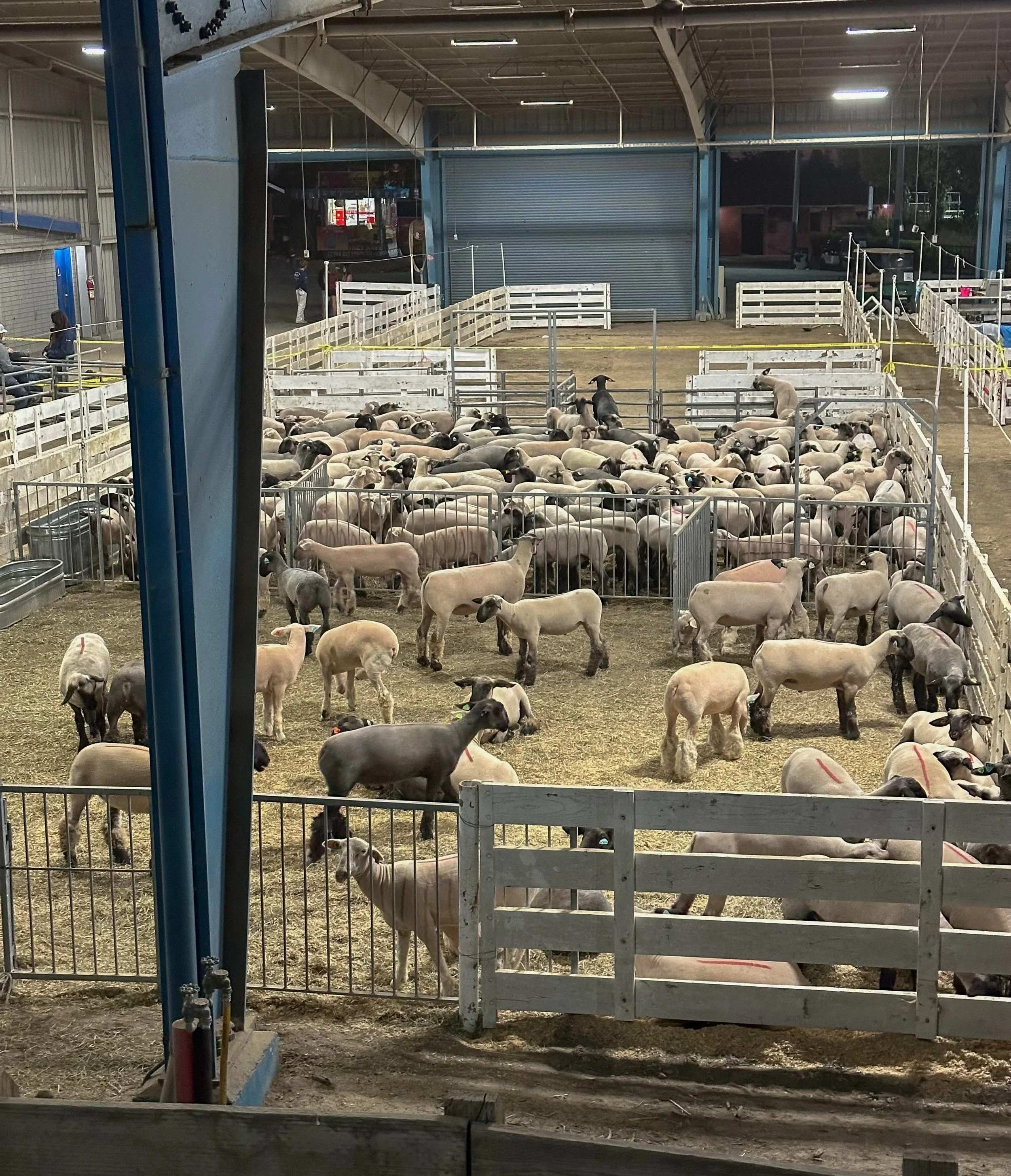Proposition J and its effects: one year later
This year's Sonoma County Fair auction sheep on the last day of fair(The Puma Prensa / Keira Eicken)
By Keira Eicken, Staff Writer
From the milk and meats at your local grocery store to the pet shops you drive past daily, failed Proposition J has created a domino effect throughout Sonoma County, hindering Rincon Valley for far too long.
In 2024, groups of animal rights activists proposed “Proposition J,” also known as “Measure J.” This congregation wrongfully stated that organizations in Sonoma County’s Concentrated Animal Feeding Operation (CAFO), such as Petaluma Egg Farm and McClelland's Dairy, were keeping their animals in unsanitary and abusive conditions.
The term CAFO is used to describe large, commercial farms, but the direct definition states that a CAFO is 1,000 pounds of “live” animal weight that is confined for 45 days or more. Most farms in Sonoma have approximately 350-1200 mature and viable cows, all reaching this 1,000 pound mark. Our poultry farms also fall into this category, as they have the means to house thousands of animals.
From a bigger point of view, In the 2022 Census Of Agriculture, Sonoma County ranked 5th in poultry production, 23rd in cattle production, and 10th in milk production for California. These ranks in agriculture are due to the diversity, healthy soil, and copious water sources that make it possible to focus on these goods, demonstrating how vital agriculture is to our county and state.
How would the shut down of CAFOs affect our district? Sonoma County, and California as a whole, rely on a community of generous and hardworking people to keep the society running. Not only would the purpose of Prop. J have failed, but hundreds of youth and families would lose their jobs. The purpose of Prop. J was to eventually give animals a better life, but with the sheer number of farms that were threatened, most of the livestock would simply have to be culled or killed. This is one of the points that contradicts the purpose of the bill–as well as disrupting the animals' lives, it would severely change hundreds of farmers' lifelong work. As well as this, there are over one thousand agricultural youth in Sonoma County, many living on family farms.
Generational work was threatened, and many families felt they had nowhere to go. Lexi Lawson, president of Annadel 4-H and member in Sebastopol Future Farmers of America (FFA), stated “it felt like the community we've supplied with food for generations suddenly didn't want us here. We worried about losing our farms, our jobs, and our way of life…the debate left a mark.”
Apart from the obvious businesses being affected, the domino effect would additionally come into play when local feed stores and grocery stores took the hit. Both types of businesses would have to convert to large producers, the type that value quantity over quality. Another point Prop. J contradicted was trying to shut down the biggest producers they could, even though they started with the small family farms. This made the bill seem like an uneducated decision and not well thought out.
The last and most important point made was how terrified hundreds of livestock showmen were during the fair season. All year long, the youth work to raise animals on their own without veterinary help, and in turn they study countless hours on how to be their own vet. Fair season comes into play when these families travel around the county to compete for the healthiest animals and most knowledgeable showman.
Many activists would meander their way into the livestock barns, covered head to toe in “Vote Yes on Prop J.” The activists would have professional cameras and even microphones to scope out any animals in poor condition. I, like many others, spent hours zip-tieing cages and defending younger kids from how harsh some of the public was. The hate even spread online, where ambassadors of farms received numerous negative messages and threats.
Showmen were instructed to lock and zip-tie cages due to reports of animals being taken in broad daylight by these protesters, which is strictly prohibited. 4-H members have always prided themselves on sharing knowledge with the public, but were advised not to because of the surrounding controversies. The public expressed their disappointment in a reported lack of interaction and attention, as well as the public expressing how empty the barn felt.
In 2024, the Sonoma County Fair only housed about 30 meat pens of rabbits. This was half of the usual income, and it was disappointing to many judges who looked forward to seeing these projects. Rather than let the numbers discourage us, 4H bounced back. In August of 2025, the fair had over 60 meat pens, and over 200 rabbits. An increase in sheep and goat entries also heightened morale, and the return of many cattle showmen was refreshing. For the first time in a while, the fair was finally back to normal, and inspiration to continue as Sonoma’s next generation motivated each and every member of the community.
Our county has the privilege of being run by its hardworking community, and anyone can find the astonishing developments of agriculture everywhere you look. It is crucial that we are educated on the topic of Prop J to make better decisions for the future of agriculture.

